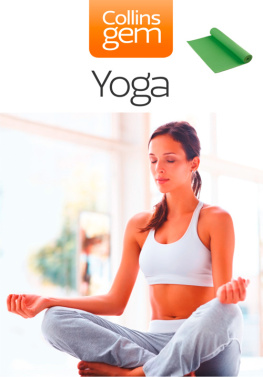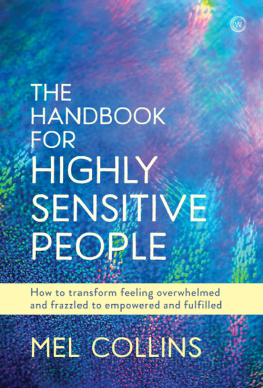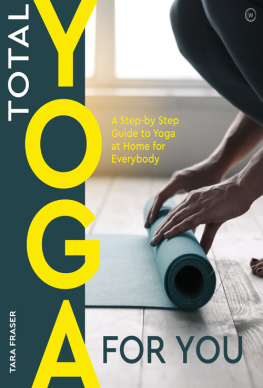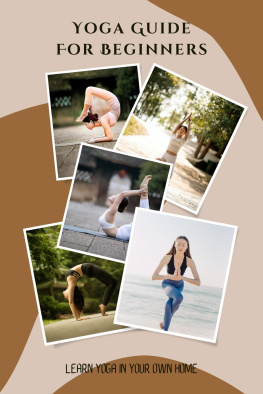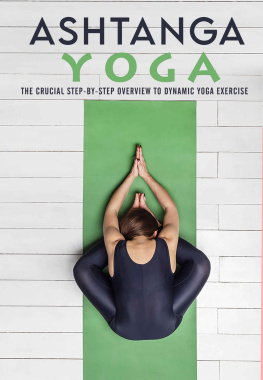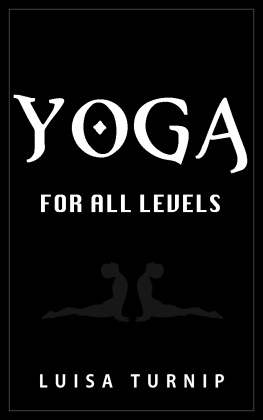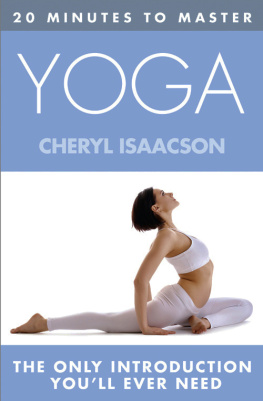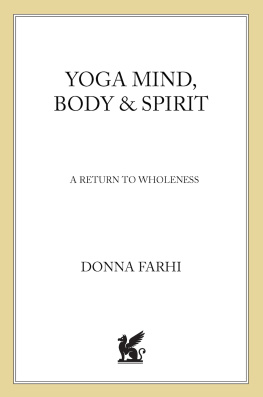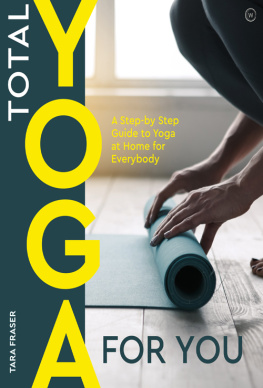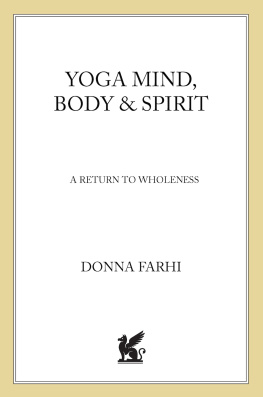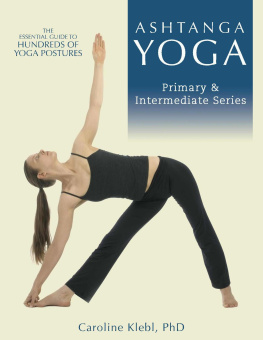Contents
Many people are wary of yoga, either imagining it as a type of weird Eastern religion or else seeing it as a form of soft physical exercise practised by middle-aged ladies. Consequently, yoga is sometimes ridiculed or dismissed out of hand. But once discovered for what it is an extremely effective and beneficial form of exercise, both for the body and mind the student will incorporate yoga almost unconsciously into his or her way of life.
Yoga brings not only an awareness to your body how you sit, how you stand, how you breathe but it also focuses your attention on your mind, letting you learn how to relax.
If you can, try to approach yoga without any preconceptions. You can take from it as much or as little as you want. If you just want something to make you more supple then attend a beginners class and feel the gentle stretching you can get from practising the postures. You may find yourself wanting to explore other aspects of yoga: the breathing, the philosophy, the literature. As much or as little as you want is there to be discovered. But just as your yoga teacher will tell you when referring to the postures, Only do what feels right for you..
The selection of postures included in this book have been chosen to illustrate the ones that are likely to be taught in a hatha yoga class. We have omitted some of the more difficult postures which should be learned under the supervision of a qualified yoga teacher.
Asanas are spoken of first, being the first stage of hatha yoga. So one should practise the asanas which give strength, keep him in good health, and make his limbs supple.
Hatha Yoga Pradipika
This chapter is an introduction to hatha yoga, the type you will probably be practising; More About Yoga () details the range of types of yoga and practice.
In the West, yoga usually means hatha yoga. This is the physical side of yoga and the one generally taught in classes. Hatha means force or will, and this branch of yoga is therefore known as the yoga of will. The student of hatha yoga gains mastery over their body through practising the postures (asanas) and through breath control (pranayama). Once the body is under control, the student can turn their attention to gaining control over the mind by meditation. When this has been achieved, they are ready to proceed along the eightfold path and join the path of Raja yoga (see ). But most of us are content to stay with the postures and breathing to gain a better sense of wellbeing.
WHATS THE DIFFERENCE BETWEEN YOGA AND PHYSICAL EXERCISE?
Physical exercise aims primarily to tone the body, building strength, stamina and flexibility through exercise; the mind does not have to be engaged. Purely physical exercises can be done almost without thinking, even while listening to music or watching TV. And there is not always a sense of balance: for instance, a backbend might not be counterbalanced by a forward bend, resulting in a potential distortion in the body. Muscle bulk is built up without taking flexibility into consideration. And often physical exercises target one specific area without being applied to the body as a whole.
Yoga encompasses both body and mind. Although the asanas are physical postures, they must be approached with concentration and awareness. They are not just a means to physical fitness: they also lead to a well-balanced, flexible body and a clear mind. Breath control is also important. In all, harnessing of the body leads to harnessing of the mind, letting the student go on to pursue the spiritual side of yoga if they choose.
T HE P OSTURES
Each posture should be approached as though you are doing it for the first time it is not like doing 100 press-ups. Both mind and body are involved. There should be no anticipation, otherwise it becomes purely automatic and you lose awareness of what your body is doing. You should take stock of how you feel, how your breath comes and goes; nothing should be rushed. Nor should you look around in class to see how anyone else is doing. Yoga is not competitive, it is about discovering your own body and yourself. You should concentrate on doing just as much of the posture as you are able, without forcing.
YOGA IS IDEAL FOR ALL AGES AND STAGES
Children: Although youngsters are naturally supple, postures can help them build concentration
Stress sufferers: Breathing and relaxation techniques are beneficial in coping with stress
Pregnant women: Yoga can help prepare for birth postures are adaptable for most stages and breathing techniques can help in labour
Disabled: Many postures can be adapted to suit special needs without losing any of the benefits
Overweight: Regular, gentle practise increases your feeling of wellbeing and enourages a more balanced approach to life and food. Many of the postures work on regulating the thyroid gland which dictates how your body uses up food.
Seniors: The gentle approach to the postures| lends itself to those of more advanced years and regular practice improves all-over flexibility.
DO YOU NEED TO BE YOUNG, THIN OR FIT TO START YOGA?
One of the great things about yoga is that anyone can take it up and benefit from it. You might be very stiff and wonder how you will ever manage a seated forward bend. The answer is you must only do as much as your body allows. In quite a short time and with regular practice you will find yourself becoming more supple and things you found impossible in your first class come more and more within your grasp. Yoga is not about comparing yourself to others in the class even if they look as though they can bend in two!
WHAT BENEFITS ARE THERE?
The benefits of hatha yoga, working on both body and mind, cannot be underestimated. Compare a depressed person, often weighed down by worry, with shoulders and neck tensed and hunched. They may find it difficult to concentrate or make decisions. They have no energy and tend to neglect their bodies. On the other hand, a happy person walks with bright eyes, a spring in their step, their shoulders relaxed and wide, their spine straight. Their minds are focused on what they are doing and they have no problems making decisions. Yoga promotes this feeling of wellbeing by toning both the body and the mind.
The postures do not just work to tone and reshape the outside of the body, they also stimulate the internal organs and revitalise the nervous system.
THE PHYSICAL BENEFITS OF YOGA
Creates energy and improves stamina, fitness and concentration
Increases awareness of your body
Keeps the body flexible so energy flows freely
Works on internal organs and the endocrine system, and regulates metabolism
Improves digestive and elimination processes
Rejuvenates, decreases tension and teaches relaxation
Improves posture and delays the ageing process
Helps reduce excess fat
Improves circulation and skin tone
Can be done by all: young, old, male and female
Needs no expensive equipment to practise
Postures provide a full, balanced range of motion
THE MENTAL BENEFITS OF YOGA
Calms and disciplines the mind
Improves concentration and counteracts stress
Gives control over emotions, particularly anger
Creates a flexible mind where energy flows freely
Promotes a positive, happy attitude
T HE S PINE
You are as old as your spine is flexible, and in yoga particular attention is paid to the spine. The spine houses the spinal cord which carries instructions from the brain to the rest of the body and it is important to keep it in good working order. The normal adult spine has four gentle curves which protect the spine from any jarring. Many

